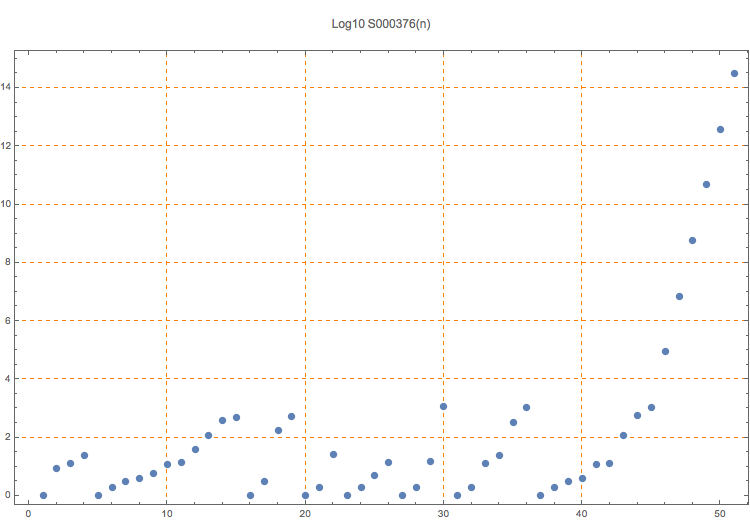Irregular array of positive numbers that form palindromic tetrahedral numbers in bases 2 to 9.
1, 9, 13, 25, 1, 2, 3, 4, 6, 12, 14, 39, 120, 392, 496, 1, 3, 173, 521, 1, 2, 26, 1, 2, 5, 14, 1, 2, 15, 1166, 1, 2, 13, 25, 323, 1105, 1, 2, 3, 4, 12, 13, 120, 588, 1093, 88573, 7174453, 581130733, 47071589413, 3812798742493, 308836698141973
1
See S000377 for the palindromic numbers created by these numbers. It appears that only base 9 has an infinite number of terms. The last three terms for base 9 are conjectured. The geometrically growing terms of the base-9 case appear to follow the formula (3^(4*n-1) - 1)/2 for n > 0. See S000378.
T. D. Noe, Plot of 51 terms
Eric W. Weisstein, MathWorld: Tetrahedral Number
(Mma) ff[base_] := Module[{time0 = TimeUsed[], n = 0, t = {}, tet, d}, While[TimeUsed[] - time0 < 300 && Length[t] < 100, n++; tet = n*(n + 1)*(n + 2)/6; d = IntegerDigits[tet, base]; If[d == Reverse[d], AppendTo[t, n]]]; Print[{base, Length[t], t}]; t]; {t2, t3, t4, t5, t6, t7, t8, t9} = ParallelMap[ff, Range[2, 9]]; Join[t2, t3, t4, t5, t6, t7, t8, t9]
Cf. A006029, A006030 (the base 10 terms), S000377, S000378.
nonn,base
T. D. Noe, Nov 21 2014
